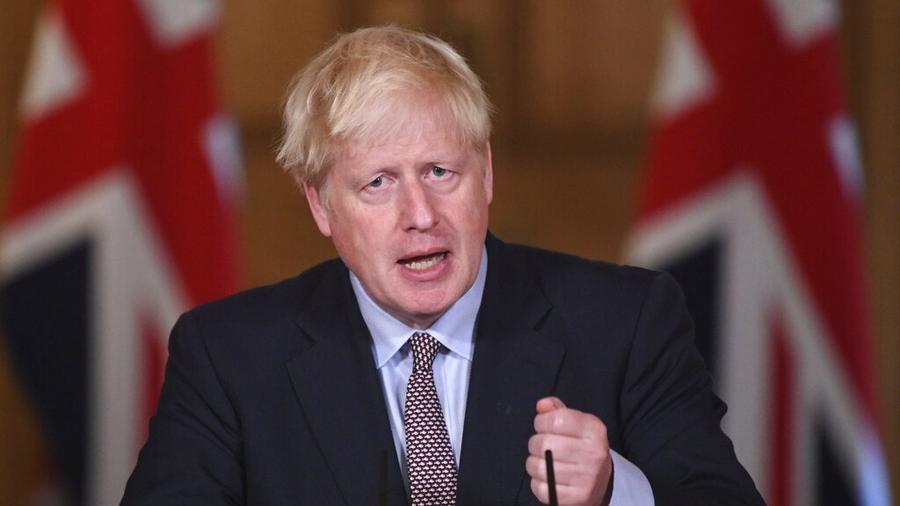 Britain's Prime Minister Boris Johnson speaks during a virtual press conference at Downing Street, London, Sept 9, 2020. (STEFAN ROUSSEAU / POOL PHOTO VIA AP)
Britain's Prime Minister Boris Johnson speaks during a virtual press conference at Downing Street, London, Sept 9, 2020. (STEFAN ROUSSEAU / POOL PHOTO VIA AP)
Prime Minister Boris Johnson will intervene in the Brexit negotiations for the first time since June when he holds talks on Saturday with European Commission President Ursula von der Leyen in an attempt to unlock a deal.
With the final round of scheduled talks between the UK and European Union over their future trade and security relationship set to end on Friday after making only limited progress, the prime minister and the EU chief will discuss how the two sides can get to an agreement.
With the final round of scheduled talks between the UK and European Union over their future trade and security relationship set to end on Friday after making only limited progress, the prime minister and the EU chief will discuss how the two sides can get to an agreement
ALSO READ: EU takes action over UK's blow to Brexit bill
“The PM will be speaking to President von der Leyen tomorrow afternoon to take stock of negotiations and discuss next steps,” a spokesperson for Johnson said.
While officials said there hasn’t been a definitive breakthrough in negotiations this week, the move is seen in Brussels as a positive step forward. The EU wants to hear from Johnson that he is prepared to take the final leap to get a deal, enabling talks to continue in coming days.
The pound erased losses to rise as much as 0.3 percent to $1.2933 as of 8:30 am in London on hopes that the talks may spur a breakthrough.
ALSO READ: EU preps for 'no-deal' Brexit as UK refuses to blink in stalemate
“The EU is willing to close a deal,” Dutch Prime Minister Mark Rutte told reporters in Brussels on Thursday. “It helps if it is done before the end of the year, but I’m not going to commit myself to a date -- the sooner the better,” he said. “We all agree that somewhere in October it would be nice to have at least the general outline and the details of a deal ready.”
If the two sides fail to reach a trade agreement by year-end, when Britain leaves the EU’s single market and customs union, millions of consumers and business will suffer the cost and disruption of tariffs and quotas and relations between the two sides could be poisoned for a generation.
The UK and EU are still stuck on the same issues that have plagued the negotiations since they began seven months ago. The EU wants guarantees on a level playing field for businesses, including on how the British government will allocate state aid, and they are at odds over how to calculate fishing quotas for European boats in British waters.
ALSO READ: Brexit talks enter key week with time and trust running out
The EU’s rejection of the compromises offered at the start of the week hasn’t stopped British officials from expressing more optimism in recent days.
“We certainly are committed to continuing to work constructively to seek to reach an agreement with the EU,” Johnson’s spokesman, James Slack, told reporters on Thursday.
While EU negotiators don’t completely share that optimism, they have been heartened by the UK’s apparent new willingness to bring potential concessions to the table and seek a deal.
Still, complicating the discussions is Johnson’s threat to break international law by unilaterally rewriting parts of the Brexit Withdrawal Agreement. On Thursday, the EU began the first stage of legal proceedings against the UK, accusing the country of a breach of good faith.
READ MORE: EU chief negotiator 'determined' to get Brexit deal but will be firm
While officials are trying to keep that issue separate from Frost and Barnier’s discussions, the EU is pressing the UK to commit to a clear, legally binding mechanism for resolving any disputes between the two sides, particularly on the issue of state aid, officials said last week.


